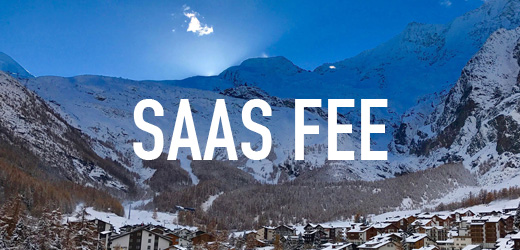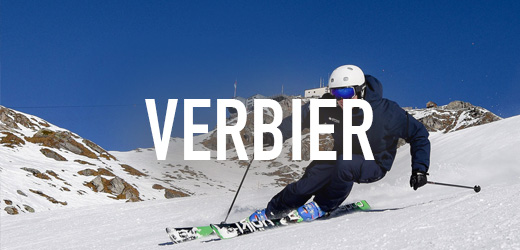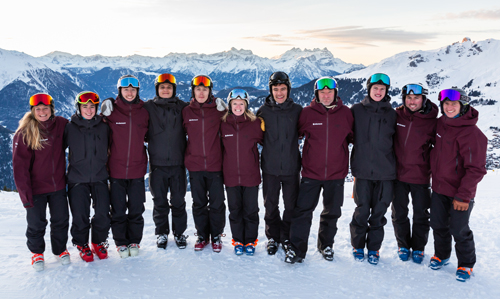GETTING A WORK VISA
You do not need a working visa to join one of our ski instructor courses.
However, if you are planning to work outside your country of citizenship then you will often need a working visa.
So this is a summary of how it works and how to apply, if you need to.
This information is a summary – and we are not experts but we have a lot of experience.
A lot of this information is specific to British, Irish and EU citizens, as non-EU citizens can cover a huge range of variations in the rules.
But we have tried to give everyone as much information as we can. So always check with the embassy about what is required – especially if you hold a non-EU passport like American or Australian.
There can be specific requirements – like booking appointments – and factors you need to consider – like the time it can take to get your Visa back.
But as always if you have questions please just get in touch.
You’ll find the following information on this page:
1 JAPANESE VISAS
2 CANADIAN VISAS
3 SWISS VISAS & PERMITS
4 EUROPEAN VISAS
JAPAN:
The Working Holiday visa is first and foremost a Holiday visa. It is not intended to be a full-blown work visa.
Please remember that you will not be granted the visa if you intend to come to Japan for the season, work a handful of months in one resort and go back to your country right afterwards.
The working holiday visa is issued on the assumption that you will be travelling and working so it is very important when applying that you stress to the embassy you will be travelling and working and that you are not simply going to Japan just to work, you will need to provide information on the application where you are traveling to and what you will be visiting.
Working holiday visas are available to several countries.
Working Holiday visas are available for either 6 months or 1 year depending on the agreement your country has with Japan.
We recommend you contact the Japanese Embassy to confirm if Visa applications are open and, if not, when they will be open.
Important points:
- It is easier to secure your job first, then apply for the Visa with the support and advice of the ski school
- To be eligible for a working holiday visa you must be between 18 – 30 years old at the time of application
- If you are from UK, Australia, New Zealand, Canada, Ireland, plus other chosen European countries then it is very unusual not to get a working holiday visa as the allocation for these countries is so high.
- You can visit this link to check eligibility: mofa.go.jp
- The visa application has to be done in person in the main consulate in your home country which could be done before, during or after your course. It is easiest to do it before your course starts in mid September. You cannot apply for it before September as it only valid for 3 months so you must enter Japan within this time frame.
- You need to allow five working days
- You might also need to leave your passport with them for five working days
- For UK citizens the Embassy of Japan, London, UK is located at 101-104 Piccadilly, Mayfair, London W1J 7JT. You don’t need an appointment and the opening hours are 9.30am – 4.30pm Monday – Friday. The phone number is +44 20 7465 6500
- In the UK the visa costs £20 and must be paid in cash at the Embassy
- You can get your visa after a job acceptance and most ski schools will help you with the application
- It is always worth having flights which are refundable in case in the unlikely event you can’t get a visa
- See more information about the visa process and application here: uk.emb-japan.go.jp
CANADA:
Canadian working visas are available via a couple of different routes – either the International Experience Canada VISA (IEC) or Young Professionals VISA.
You have to be very organised in advance with these so the best thing is to plan early and be prepared!
We recommend you contact the Canadian Embassy to confirm if Visa applications are open and, if not, when they will be open.
INTERNATIONAL EXPERIENCE CANADA VISA (IEC):
The first is the most common route of applying a visa for Canada and one which you don’t need a job first to apply:
- To be eligible for a working holiday visa you must be between 18 – 35 years old at the time of application
- If you are not a British citizen then you can check your eligibility here: cic.gc.ca
- The UK visa pool typically opens in November and is generally oversubscribed. There are 7000 spots per year in the visa pool for UK citizens each year. You must apply one-year in advance in order to have an excellent chance to receive the visa on time. If you apply a few months after the visa pool has opened it will be a lot more difficult to obtain the visa. You can check the current quote here: cic.gc.ca
- Once the visa has been approved, you have one-year to enter Canada
- The visa application process can take anywhere from in between 1 to 7 months
- The cost for the visa itself is $250 CAD and an additional £50 GBP for your background check. Lastly, you also have to pay $85 CAD for your biometrics appointment
- This visa will be valid for 24 months (UK and Irish applicants) and you can work for multiple employers
- Apply on the link above for the IEC following the steps
- If you wish to have a support service while booking this visa and help then you can apply through Bunac for £389. For info click here: bunac.org
YOUNG PROFESSIONALS VISA
The second route which is possible if you don’t get selected for an IEC, or the pool has already closed or is full, is a Young Professionals Visa.
This opportunity is aimed towards instructors who’ve already sorted their job. Once your instructor job has been secured you can contact our partner company BUNAC, they can help you obtain the Young Professionals Visa.
If you are a UK or Irish citizen then you can only book this visa through BUNAC.
If you are another nationality then your country may have a pool of available spots but you need to check with your home country.
- To be eligible to apply to the programme through BUNAC, you’ll need to hold a UK passport and be aged between 18-35.
- It takes an average of 8 weeks to process your application and get back your decision. Ideally you want to start the process in August with a job already in place to give yourself enough time before the winter starts
- The visa lasts two years so you can return to the same employer the next winter. On this visa you can only work for the employer that’s sponsoring you
- Applications can only be submitted while the UK visa pool is open
- There are three fees to pay for this visa:
- BUNAC Programme Fee – £549 which includes support plus many other perks (Peak Leaders candidates receive an £80 discount on the this price)
- Immigration Visa Fee – $150
- Employer Fee – $230 which may be covered by the employer or deducted from your salary during the season
- Click here for more information on this visa and costs
- UK applications have to apply through BUNAC: https://www.bunac.org/uk/work-abroad/working-holiday-packages/work-canada/young-professionals-visa
- It is always worth having flights which are refundable in case in the unlikely event you can’t get a visa
- When contacting BUNAC always mention in your first email that you are a trainee with Peak Leaders to receive the discount
- You can contact BUNAC directly for visa assistance by calling 0333-999-7516 or emailing enquiries@bunac.org.uk
SWITZERLAND:
EU CITIZENS:
In Switzerland EU citizens are required to apply for a work permit and there are, essentially, two types.
Firstly an ‘Annonce’ which allows you to work for up to 90 days.
Secondly an L Permit which allows you to work up to a year.
It doesn’t matter which type you have and your ski school will know which one to get you, depending on your contract and anticipated hours.
Be aware that you must take out Swiss Health Insurance, which is rather expensive but mandatory. Your ski school will arrange this – but it can cost over 200 chf per month, so a significant part of your pay cheque.
Once applied for permits will be granted as long as you have the correct paperwork:
- All the forms from the local Commune (council) correctly completed
- An EU passport
- A work contract
- An accommodation contract
- Swiss Health Insurance (if working longer than a week)
- Proof of savings or of financial support ( letter from a parent or family member is usually enough)
Your employer will normally arrange all of this and tell you what you need to supply. They also often pay the application fee and once your application is in you can start work.
Requirements can vary slightly between regions, even between areas in the same Canton (state), so it’s worth talking to the ski schools about the precise regional requirements.
NON-EU CITIZENS (INCLUDING UK CITIZENS):
If you are not from the EU then things are little more complex, so if you are able to apply for an EU passport through an ancestor it can make life a lot easier when looking for work.
Some non-EU nations are eligible for the new Working Student Visa but the requirements are complicated and each ski school can only have a certain quota of these visas.
Canadians can also benefit from the Youth Mobility Program allowing trainees to live and work in Switzerland.
Otherwise non-EU citizens have to prove that they have a skill that no Swiss or EU citizen has. And that’s not easy to prove when you are applying for a job as a ski instructor.
UK Trainees can, however apply for a Student Permit. It doesn’t allow you to work but there are benefits – click here to read more.
THE REST OF EUROPE:
If you are an EU citizen you can work in Europe but ski instructor jobs are subject to the local qualification rules.
For example you cannot normally work in France without the BASI Level 4.
We will be adding further information here soon, as the differences in employment between the European countries can be quite extensive.
COURSES
More information about our courses and the resorts
FAQs
Answers to some of your Frequently Asked Questions
ABOUT US
Find out more about what makes Peak Leaders courses different
WHY US?
Why choose a to train with Peak Leaders?









